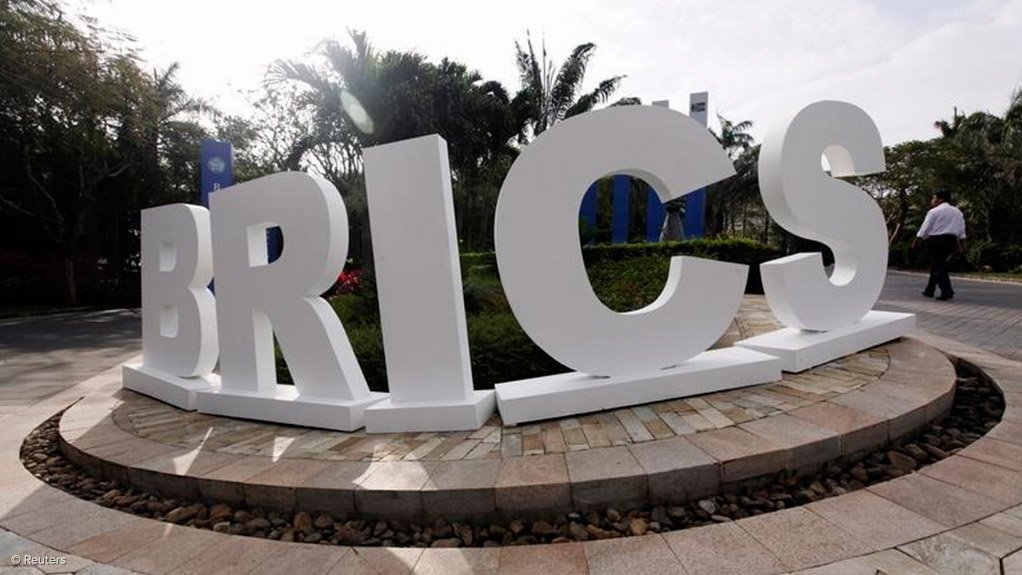The Brazil, Russia, India, China and South Africa (Brics) economic grouping should “institutionalise” African issues at the upcoming Brics summit in Russia, from July 8 to 9.
Africa had infrastructure needs of an estimated $100-billion a year, which was hampering gross domestic product growth on the continent.
Speaking at a South African Institute of International Affairs (Saiia) media briefing on Monday, Namibian political scientist Dr Tjiurimo Hengari said the issues facing the continent were extensive.
“Going forward, Brics need [to focus] on Africa to [have] urgent conversations on its issues. There is a possibility for South Africa to do more and I think this might mean that the country . . . should use the Brics membership to open new avenues.”
This could be furthered through the participation of Brics’ $50-billion New Development Bank (NDB), which was expected to be operational by year-end. The NDB would provide developing countries with an alternative source of capital to the International Monetary Fund and the World Bank.
Banking firm Bank of America Merrill Lynch Southern Africa president Leslie Maasdorp was nominated as VP of the NDB, while former South African Reserve Bank governor Tito Mboweni was appointed nonexecutive director.
However, Saiia economic diplomacy researcher Christopher Wood noted that, although there had been concrete progress made on the NDB, “much faster than a lot of commentators imagined”, it was a “lie” that [the bank] would be operational by the end of this year.
“Nominally, the bank will be operational, but what that will mean in practice is that there is a board meeting. There will be discussion on how the bank is going to operate.
“But in terms of actually seeing money flowing out of the bank, seeing capital even flowing into the bank, that’s going to take a little longer,” he noted.
With each of the Brics members contributing $10-billion to the NDB, it would have subscribed capital of $50-billion.
Earlier this year, International Relations and Cooperation Minister Maite Nkoana-Mashabane said South Africa would be able to draw on the $10-billion funding without having to worry “that we are putting our children in debt”.
The bank, Wood pointed out, would likely invest in “big infrastructure projects”, with some scope to work on social infrastructure, including schools and hospitals. “But the major focus would be on self-sustaining infrastructure, such as roads and power stations, that tie into the industrial development of [member] countries,” he said.
Wood added that it would be surprising if South Africa drew on the bank to fund its nuclear development programme, as it would cost too much and take too long. “You tie up a lot of capital in those types of projects and the NDB would want a high turnover of projects,” he said.
Further, he emphasised that, owing to the launch of the Asia Infrastructure Investment Bank, it raised the question of where the Brics bank’s mandate would focus.
“It seems like it won’t focus on China and its immediate surrounds, but it will focus on India and Africa.”
However, Saiia senior researcher Memory Dube snubbed the idea that the biggest focus of the bank’s investment would be in Africa.
“The expectation that was created that the NDB would focus on Africa is an overreach,” she stated, adding that some of the issues that were raised at the 2013 Brics summit, in South Africa, were still not solved.
Meanwhile, Wood said another source of investment finance was the $100-billion Contingent Reserve Arrangement (CRA), which acted as a financial safety net to tackle short-term balance of payments or liquidity crises that the Brics countries could face. “This pledge [was made] by governments to put aside money should any of the other member countries fall into trouble,” he said.
The CRA hosted a pool of Brics members’ foreign reserves, with China investing about $41-billion, Russia, Brazil and India adding $18-billion each to the kitty and South Africa $5-billion.
“This agreement is not there as a practical, usable instrument, [as] most of the countries would not need this pool of money. Russia, China and Brazil have such large foreign reserves that they probably would never have a reason to draw on this. It doesn’t seem like any of the countries will be drawing on it in the short-term.”
Asked which country could draw on this agreement first, Wood told Engineering News Online that India or South Africa would be most likely, as these two countries had the lowest foreign reserves.
“If they were to use it, it also comes at serious cost. If you declare that you need to draw on your arrangement, it sends a signal to the markets that your country is in big trouble, and often that signal can deepen the problem more than the funding will resolve it.”
EMAIL THIS ARTICLE SAVE THIS ARTICLE
To subscribe email subscriptions@creamermedia.co.za or click here
To advertise email advertising@creamermedia.co.za or click here











